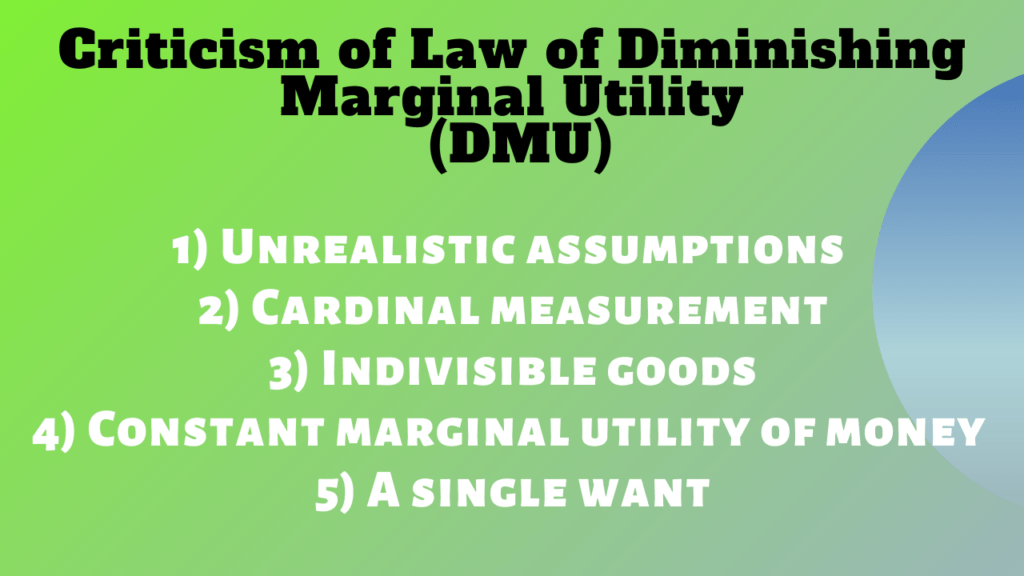Criticism of Law of Diminishing Marginal Utility (DMU) | Free Economics Articles
Criticism of Law of Diminishing Marginal Utility

What are the Criticism of Law of Diminishing Marginal Utility?
Statement of the Law of DMU:
According to Prof. Alfred Marshall, “Other things remaining constant, the additional benefit which a person derives from a given increase in his stock of a thing, diminishes with every increase in the stock that he already has.”
In other words, a marginal utility that any consumer derives from successive units of a particular commodity goes on diminishing as his or her total consumption of that commodity increases. In short, the more of a thing you have, the less you want to have more of it.
- Microeconomic Definition | Historical Review of Microeconomics
- Scope Or Nature of Microeconomics
- Exceptions of Law of Diminishing Marginal Utility
- Criticism of Law of Diminishing Marginal Utility
Criticism of Law of Diminishing Marginal Utility
Criticisms of the Law:
The law of diminishing marginal utility is criticized on the following grounds.
1) Unrealistic assumptions:
The law of diminishing marginal utility is based upon various assumptions like homogeneity, continuity, constancy, rationality, etc. but in reality, it is difficult to fulfill all these conditions at a point of time.
2) Cardinal measurement:
The law assumes that utility can be expressed cardinally so it can be added, compared, and presented through a schedule. In reality, the cardinal measurement of utility is not possible
because utility is a psychological concept.
3) Indivisible goods:
The law does not apply to indivisible and bulky goods like refrigerators, cars, TV sets, etc. which are normally purchased in a single unit at a time.
4) Constant marginal utility of money:
The law assumes that the MU of each unit of money remains constant. However, critics argue that MU of money differs from person to person. It is influenced by changes in prices,
the stock of money etc.
5) A single want:
The law is restricted to the satisfaction of a single want at a point of time. However, in reality, a man has to satisfy many wants at a point of time.
Other Related Topics:


